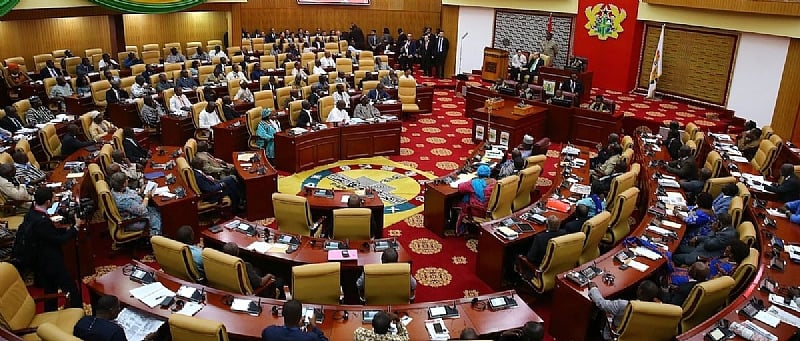The Ghanaian Parliament recently concluded the vetting and approval process for twelve ministerial nominees, a process marked by both consensus and contention. The majority of nominees secured parliamentary approval, signifying a step forward in filling key government positions. However, the nomination of Samuel Okudzeto Ablakwa for the position of Minister-Designate for Foreign Affairs became a focal point of political discord, ultimately leading to his rejection by the Minority Caucus. This rejection underscores the persistent partisan divisions within the Ghanaian political landscape and foreshadows potential challenges in the collaborative governance of the nation.
Among the approved nominees, Kwabena Mintah Akandoh was designated for the crucial Ministry of Health, a portfolio demanding significant attention given the ongoing global health concerns and the nation’s specific health priorities. Other approved nominees include Issifu Seidu for Climate Change and Sustainability, reflecting the increasing importance of environmental issues in national policy. Several nominees were designated to lead regional ministries, including Charity Gardiner for the Ahafo Region, Salisu Bi-Awuribe for the Savannah Region, Wilbert Petty Brentum for the Western North Region, Joseph Nelson for the Western Region, Joseph Addae Akwaboa for the Bono Region, Francis Owusu Antwi for the Bono East Region, Ekow Panyin Okyere Eduamoah for the Central Region, and Charles Lwanga Puozuing for the Upper West Region. These appointments address the specific needs and development goals of these regions.
The appointment of Felix Kwakye Ofosu as Minister of State-Designate for Government Communications also holds significance. This role is critical for disseminating government information, shaping public perception, and managing communication strategies in an increasingly complex media environment. Effective communication is vital for maintaining transparency and accountability, building public trust, and fostering a well-informed citizenry.
The rejection of Samuel Okudzeto Ablakwa’s nomination for Foreign Affairs Minister sparked controversy and highlighted the deep-seated political divides within Parliament. The Minority Caucus, led by Alexander Afenyo-Markin, voiced strong concerns over Ablakwa’s vetting process and responses during parliamentary hearings. They argued that his performance during the vetting process did not inspire confidence in his ability to effectively manage the complex international relations portfolio.
The Minority’s symbolic act of “washing their hands” of Ablakwa’s approval, a gesture rich in political symbolism, underscored their disapproval and disassociation from the potential consequences of his appointment. This dramatic display emphasized their conviction that Ablakwa was unsuitable for the position and that his appointment would be detrimental to the nation’s foreign policy objectives. Afenyo-Markin’s statement that the majority should “carry the sins of Ablakwa” further solidifies their position and assigns responsibility for any potential negative outcomes to those who supported his nomination.
This incident underscores the challenges facing the Ghanaian government in achieving bipartisan cooperation on critical national issues. The political polarization evident in this rejection could potentially hinder progress on crucial policy initiatives and impede the effective functioning of government. The ability of the ruling party and the opposition to find common ground and work collaboratively is essential for addressing the complex challenges facing the nation.
The parliamentary approval of most ministerial nominees, while a significant step, is overshadowed by the contentious rejection of Ablakwa’s nomination. This rejection serves as a stark reminder of the persistent political divisions and the need for greater dialogue and cooperation between the different political factions. The future of Ghanaian politics hinges on the ability of these factions to bridge their differences and work together for the betterment of the nation. The ability to find common ground and forge consensus will be crucial for navigating the complex challenges ahead and ensuring the successful implementation of policies that benefit all citizens.


